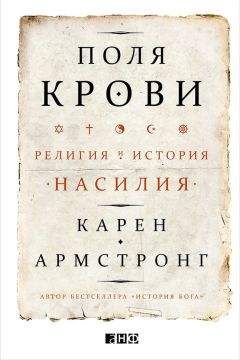1394
Marsden, Fundamentalism and American Culture, pp. 90–92; Robert C. Fuller, Naming the Antichrist: The History of an American Obsession (Oxford and New York, 1995), p. 119
Marsden, Fundamentalism, pp. 184–89; R. Lawrence Moore, Religious Outsiders and the Making of Americans (Oxford and New York, 1986), pp. 160–63; Ronald L. Numbers, The Creationists: The Evolution of Scientific Creationism (Berkeley, Los Angeles and London, 1992), pp. 41–44, 48–50; Ferenc Morton Szasz, The Divided Mind of Protestant America, 1880–1930 (University, Ala., 1982), pp. 117–35
Marsden, Fundamentalism in America, pp. 187–88
Aurobindo Ghose, Essays on the Gita (Pondicherry, 1972), p. 39
Louis Fischer, ed., The Essential Gandhi (New York, 1962), p. 193
Mahatma Gandhi, ‘My Mission’, Young India, 3 April 1924, in Judith M. Brown, ed., Mahatma Gandhi: Essential Writings (Oxford and New York, 2008), p. 5
Mahatma Gandhi, ‘Farewell’, An Autobiography, in ibid., p. 65
Kenneth W. Jones, ‘The Arya Samaj in British India, 1875–1947’, in Robert D. Baird, ed., Religion in Modern India (Delhi, 1981), pp. 44–45
Radhey Shyam Pareek, Contribution of Arya Samaj in the Making of Modern India, 1875–1947 (New Delhi, 1973), pp. 325–26
Daniel Gold, ‘Organized Hinduisms: From Vedic Truth to Hindu Nation’, in Martin E. Marty and R. Scott Appleby, eds, Fundamentalisms Observed (Chicago and London, 1991), pp. 533–42
Vinayak Damodar Savakar, Hindutva (Bombay, 1969), p. 1
Gold, ‘Organized Hinduisms, ’ pp. 575–80
M. S. Golwalkar, We or Our Nationhood Defined (Nagpur, 1939), pp. 47–48
Ibid., p. 35
Sudhir Kakar, The Colours of Violence: Cultural Identities, Religion, and Conflict (Chicago and London, 1996), p. 31
Ibid., p. 38
Gold, ‘Organized Hinduisms’, pp. 531–32; Sushil Srivastava, ‘The Ayodhya Controversy: A Third Dimension’, Probe India, January 1988
Abul Ala Mawdudi, The Islamic Way of Life (Lahore, 1979), p. 37
Charles T. Adams, ‘Mawdudi and the Islamic State’, in John Esposito, Voices of Resurgent Islam (New York and Oxford, 1983); Youssef M. Choueiri, Islamic Fundamentalism (London, 1970), pp. 94–139
Mumtaz Ahmad, ‘Islamic Fundamentalisms in South Asia, ’ in Marty and Appleby, Fundamentalisms Observed, pp. 487–500
Abul Ala Mawdudi, Tafhim-al-Qur’an, in Mustansire Mir, ‘Some Features of Mawdudi’s Tafhim al-Quran’, American Journal of Islamic Social Sciences, 2, 2 (1985), p. 242
Introducing the Jamaat-e Islami Hind, in Ahmad ‘Islamic Fundamentalism in South Asia, ’ pp. 505–06.
Ibid., pp. 500–01
Khurshid Ahmad and Zafar Ushaq Ansari, Islamic Perspectives (Leicester, 1979), pp. 378–81
Abul Ala Maududi, ‘Islamic Government’, reprinted in Asia 20 (September 1981), p. 9.
Rafiuddin Ahmed, ‘Redefining Muslim Identity in South Asia: The Transformation of the Jama’at-i-Islami’, in Martin E. Marty and R. Scott Appleby, eds, Accounting for Fundamentalisms: The Dynamic Character of Movements (Chicago and London, 1994), p. 683
Ахмадиты считались еретиками, поскольку Ахмад (ум. 1908 г.), их основатель, объявил себя пророком.
Ahmad, ‘Islamic Fundamentalism in South Asia, ’ pp. 587–8
Abul Ala Maududi, ‘How to Establish Islamic Order in the Country? ’, The Universal Message, May 1983, pp. 9–10.
Marshall G. S. Hodgson, The Venture of Islam: Conscience and History in a World Civilization, 3 vols (Chicago and London, 1974), 3, 218–19
George Annesley, The Rise of Modern Egypt: A Century and a Half of Egyptian History, p. 62
Ibid., pp. 51–56
Hodgson, Venture of Islam, 3, p. 71
Nikkie R. Keddie, Roots of Revolution: An Interpretive History of Modern Iran (New Haven, Conn., and London, 1981), pp. 72–73, 82
John Kautsky, The Political Consequences of Modernisation (New York, London, Sydney and Toronto, 1972), pp. 146–47
Bruce Lincoln, Holy Terrors: Thinking about Religion after September 11, 2nd ed. (Chicago and London, 2006), pp. 63–65
Daniel Crecelius, ‘Non-Ideological Responses of the Ulema to Modernization’, in Nikki R. Keddie, ed, Scholars, Saints and Sufis: Muslim Religious Institutions in the Middle East since 1500 (Berkeley, Los Angeles and London, 1972), pp. 181–82
Gilles Kepel, Jihad: The Trail of Political Islam, trans. Anthony F. Roberts, 4th ed. (London, 2009), p. 53
Alastair Crooke, Resistance: The Essence of the Islamist Revolution (London, 2009), pp. 54–58
Bobby Sayyid, A Fundamental Fear: Eurocentrism and the Emergence of Islamism (London, 1997), p. 57
Hodgson, Venture of Islam, 3, p. 262
Donald Bloxham, The Great Game of Genocide: Imperialism, Nationalism and the Destruction of the Ottoman Armenians (Oxford, 2007), p. 59
Цит. по: Joanna Bourke, ‘Barbarisation vs. Civilisation in Time of War’, in George Kassimeris, ed., The Barbarisation of Warfare (London, 2006), p. 29
Moojan Momen, An Introduction to Shii Islam: The History and Doctrines of Twelver Shiism (New Haven, Conn., and London, 1985), p. 251; Keddie, Roots of Revolution, pp. 93–94
Azar Tabari, ‘The Role of Shii Clergy in Modern Iranian Politics’, in Nikki R. Keddie, ed., Religion and Politics in Iran: Shiism from Quietism to Revolution (New Haven, Conn., and London, 1983), p. 63
Shahrough Akhavi, Religion and Politics in Contemporary Islam: Clergy – State Relations in the Pahlavi Period (Albany, NY, 1980), pp. 58–59
Majid Fakhry, A History of Islamic Philosophy (New York and London, 1970), pp. 376–81; Bassam Tibi, Arab Nationalism: A Critical Inquiry, trans. Marion Farouk Slugett and Peter Slugett, 2nd ed. (London, 1990), pp. 90–93; Hourani, Arabic Thought in the Liberal Age, pp. 130–61; Hodgson, Venture of Islam, 3, pp. 274–76
Evelyn Baring, Lord Cromer, Modern Egypt, 2 vols (New York, 1908), 2, p. 184
Hourani, Arabic Thought in the Liberal Age, pp. 224, 230, 240–43
John Esposito, ‘Islam and Muslim Politics’, in Esposito, ed., Voices of Resurgent Islam, p. 10; Richard P. Mitchell, The Society of Muslim Brothers (New York and Oxford, 1969), passim
Mitchell, Society of Muslim Brothers, p. 8; даже если эта история и эта речь апокрифичны, они отражают дух раннего братства
Ibid., 9–13, 328
Anwar Sadat, Revolt on the Nile (New York, 1957), pp. 142–43
Mitchell, Society of Muslim Brothers, pp. 205–06
Ibid., p. 302
John O. Voll, ‘Fundamentalisms in the Sunni Arab World: Egypt and the Sudan’, in Martin E. Marty and R. Scott Appleby, eds, Fundamentalisms Observed (Chicago and London, 1991), pp. 369–74; Yvonne Haddad, ‘Sayyid Qutb’, in Esposito, ed., Voices of Resurgent Islam; Choueiri, Islamic Fundamentalism, pp. 96–151
Qutb, Fi Zilal al-Quran, 2, 924–25
Harold Fisch, The Zionist Revolution: A New Perspective (Tel Aviv and London, 1968), pp. 77, 87 (Фиш Г. Еврейская революция. – М.: Амана, 1993.)
Theodor Herzl, The Complete Diaries of Theodor Herzl, ed. R. Patai, 2 vols (London and New York, 1960), 2, pp. 793–94
Mircea Eliade, The Sacred and the Profane, trans. Willard J. Trask (New York, 1959), p. 21 (Элиаде М. Священное и мирское. – М.: МГУ.)
Meir Ben Dov, The Western Wall (Jerusalem, 1983), p. 146
Ibid., p. 148
Ibid., p. 146
Meron Benvenisti, Jerusalem: The Torn City (Jerusalem, 1975), p. 84
Ibid., p. 119
Пс. 71:4
Michael Rosenak, ‘Jewish Fundamentalism in Israeli Education’, in Martin E. Marty and R. Scott Appleby, eds, Fundamentalisms and Society: Reclaiming the Sciences, the Family, and Education (Chicago and London, 1993), p. 392
Gideon Aran, ‘The Father, the Son and the Holy Land’, in R. Scott Appleby, ed., Spokesmen for the Despised: Fundamentalist Leaders in the Middle East (Chicago, 1997), p. 310
Ibid.
Ibid., p. 311
Ibid., p. 310
Интервью газете «Маарив» (14 нисана 5723 / 1963 г.). см.: Aviezer Ravitsky, Messianism, Zionism, and Jewish Religious Radicalism, trans. Michael Swirsky and Jonathan Chipman (Chicago and London, 1993), p. 85.
Ian S. Lustick, For the Land and the Lord: Jewish Fundamentalism in Israel (New York, 1988), p. 85; Aran, ‘Father, Son and the Holy Land, ’ p. 310
Samuel C. Heilman, ‘Guides of the Faithful: Contemporary Religious Zionist Rabbis’, in Appleby, ed., Spokesmen for the Despised, p. 357
Ehud Sprinzak, ‘Three Models of Religious Violence: The Case of Jewish Fundamentalism in Israel’, in Martin E. Marty and R. Scott Appleby, eds. Fundamentalism and the State: Remaking Politics, Economics and Militance (Chicago and London, 1993), p. 472
Gideon Aran, ‘Jewish Zionist Fundamentalism’, in Marty and Appleby, eds., Fundamentalisms Observed, p. 290.
Gideon Aran, ‘Jewish Religious Zionist Fundamentalism’, in ibid., p. 280
Ibid., p. 308
Keddie, Roots of Revolution, pp. 160–80
Mehrzad Borujerdi, Iranian Intellectuals and the West: The Tormented Triumph of Nativism (Syracuse, NY, 1996), p. 26; Choueiri, Islamic Fundamentalism, p. 156
Michael J. Fischer, ‘Imam Khomeini: Four Levels of Understanding’, in Esposito, ed., Voices of Resurgent Islam, p. 157
Keddie, Roots of Revolution, pp. 154–56
Ibid., pp. 158–59; Momen, Introduction to Shii Islam, p. 254; Hamid Algar, ‘The Oppositional Role of the Ulema in Twentieth-Century Iran’, in Nikki R. Keddie, ed., Scholars, Saints and Sufis: Muslim Religious Institutions in the Middle East since 1500 (Berkeley, Los Angeles and London, 1972), p. 248




